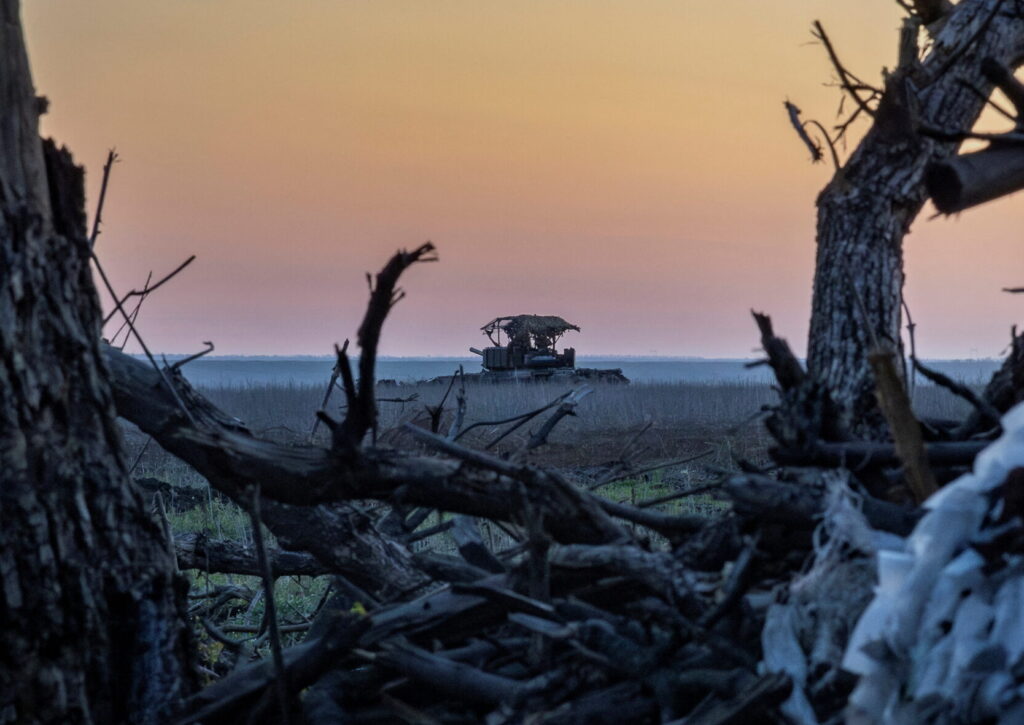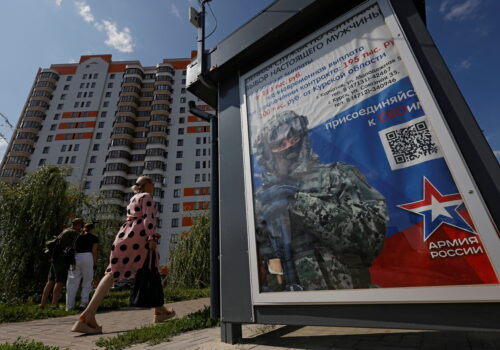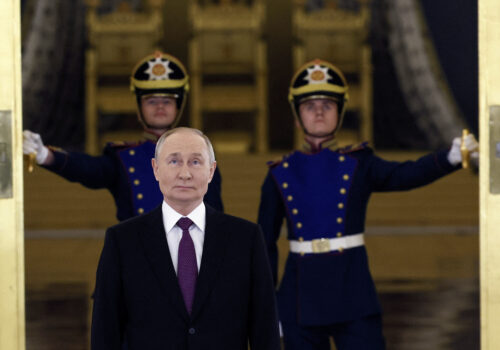In the wake of Donald Trump’s US presidential election victory, the discussion in Washington, European capitals, and Kyiv has sharply turned toward the possibility of a negotiated solution to end the war between Russia and Ukraine. At the same time, serious concerns remain over Trump’s long history of mixed messaging on Ukraine, leading to widespread fears that he could seek to broker a Kremlin-friendly peace deal.
Ukrainian officials understand that the current uncertainty about future international support could be seen by Moscow as a sign of weakening Western resolve. With this in mind, they are understandably eager to avoid any indications of growing divisions among Ukraine’s partners. There was therefore considerable disquiet in Kyiv last week over German Chancellor Olaf Scholz’s controversial decision to hold a phone call with Russian President Vladimir Putin for the first time in around two years.
The call itself produced few real surprises. Putin took the opportunity to repeat the unchanged goals of his invasion and stress that the terms of any potential settlement must reflect the “new territorial realities” in Ukraine. From a Ukrainian perspective, however, the real story was the fact that the conversation between Scholz and Putin took place at all.
Stay updated
As the world watches the Russian invasion of Ukraine unfold, UkraineAlert delivers the best Atlantic Council expert insight and analysis on Ukraine twice a week directly to your inbox.
Ukrainian President Volodymyr Zelenskyy led the chorus of criticism, accusing Scholz of opening a “Pandora’s box” and warning that the German leader’s actions risked undermining international efforts to isolate the Russian dictator. The call was “exactly what Putin had wanted for a long time,” stated Zelenskyy.
Other Western leaders echoed Zelenskyy’s concerns. Polish Prime Minister Donald Tusk noted that Putin launched a massive bombardment of cities across Ukraine soon after Scholz’s call. “No one will stop Putin with phone calls,” he commented. “The attack last night, one of the biggest in this war, has proved that telephone diplomacy cannot replace real support from the whole West for Ukraine.”
A host of European foreign ministers voiced similar skepticism. Dutch Foreign Minister Caspar Veldkamp questioned the value of the German initiative, noting that Putin “only listens to facts on the ground.” Lithuanian Foreign Minister Gabrielius Landsbergis branded the call “a really strange strategy.” Meanwhile, the EU’s top diplomat Josep Borrell confirmed that he had no plans to call Putin and said there was very little sign that the Russian leader was willing to negotiate.
Moscow’s openly enthusiastic response to Scholz’s call has done little to ease Western concerns. Kremlin officials confirmed that the telephone conversation had been initiated by the German side, and said the fact that the two leaders had spoken directly was “extremely positive.”
Eurasia Center events

The Kremlin’s obvious satisfaction over Scholz’s phone call came as no surprise. Since the full-scale invasion of Ukraine first began almost three years ago, Russian officials have worked hard to demonstrate that attempts to isolate Putin on the international stage are futile.
Putin rarely has any contact with Western leaders anymore, but he has compensated by strengthening ties with the Global South while promoting his vision of a “multipolar world order.” Russian Foreign Minister Sergei Lavrov has spent a remarkable amount of time trying to win hearts and minds in Africa, while the leaders of China and India have both paid highly publicized visits to Moscow. This year’s BRICS summit, which Russia hosted in October, focused heavily on portraying Putin as anything but isolated.
With snap German elections looming, Scholz is likely to have had domestic politics very much in mind when he decided to call Putin. Nevertheless, critics say the timing of his telephone diplomacy initiative could hardly have been worse.
The German leader’s call to the Kremlin came as Russian troops continue to advance in eastern Ukraine, and amid mounting uncertainty across Europe over the potential policy implications of Trump’s return to the White House. In such circumstances, the West should be signaling its unwavering collective commitment to Ukraine. Instead, Putin’s conversation with Scholz will have strengthened the Russian ruler’s belief that he can ultimately outlast the West in Ukraine.
As the war enters what is likely to be a critical period, Ukrainians will be hoping that the backlash over Scholz’s call will discourage other Western leaders from following suit. In order to have any chance of achieving a viable peace settlement in the coming months, Ukraine must negotiate from a position of strength. That will only be possible if the country’s Western allies are able to convince the Kremlin that they remain as determined as ever to stand with Ukraine. If displays of disunity continue, Putin will have little incentive to compromise and every reason to fight on.
Katherine Spencer is a program assistant at the Atlantic Council’s Eurasia Center.
Further reading
The views expressed in UkraineAlert are solely those of the authors and do not necessarily reflect the views of the Atlantic Council, its staff, or its supporters.

The Eurasia Center’s mission is to enhance transatlantic cooperation in promoting stability, democratic values and prosperity in Eurasia, from Eastern Europe and Turkey in the West to the Caucasus, Russia and Central Asia in the East.
Follow us on social media
and support our work
Image: The shell of a burned-out Russian tank stands on the battlefield outside a forest battered by artillery fire, near a frontline trench in the Donetsk Region, amid Russia’s attack on Ukraine, April 13, 2024. All that remains of many forests in eastern Ukraine are fields of stripped, broken trunks. Local wildlife, including deer, boars and woodpeckers, have been badly affected by the loss of habitats, the experts said, although it is currently hard to gauge biodiversity loss in forests. (REUTERS/Thomas Peter)




